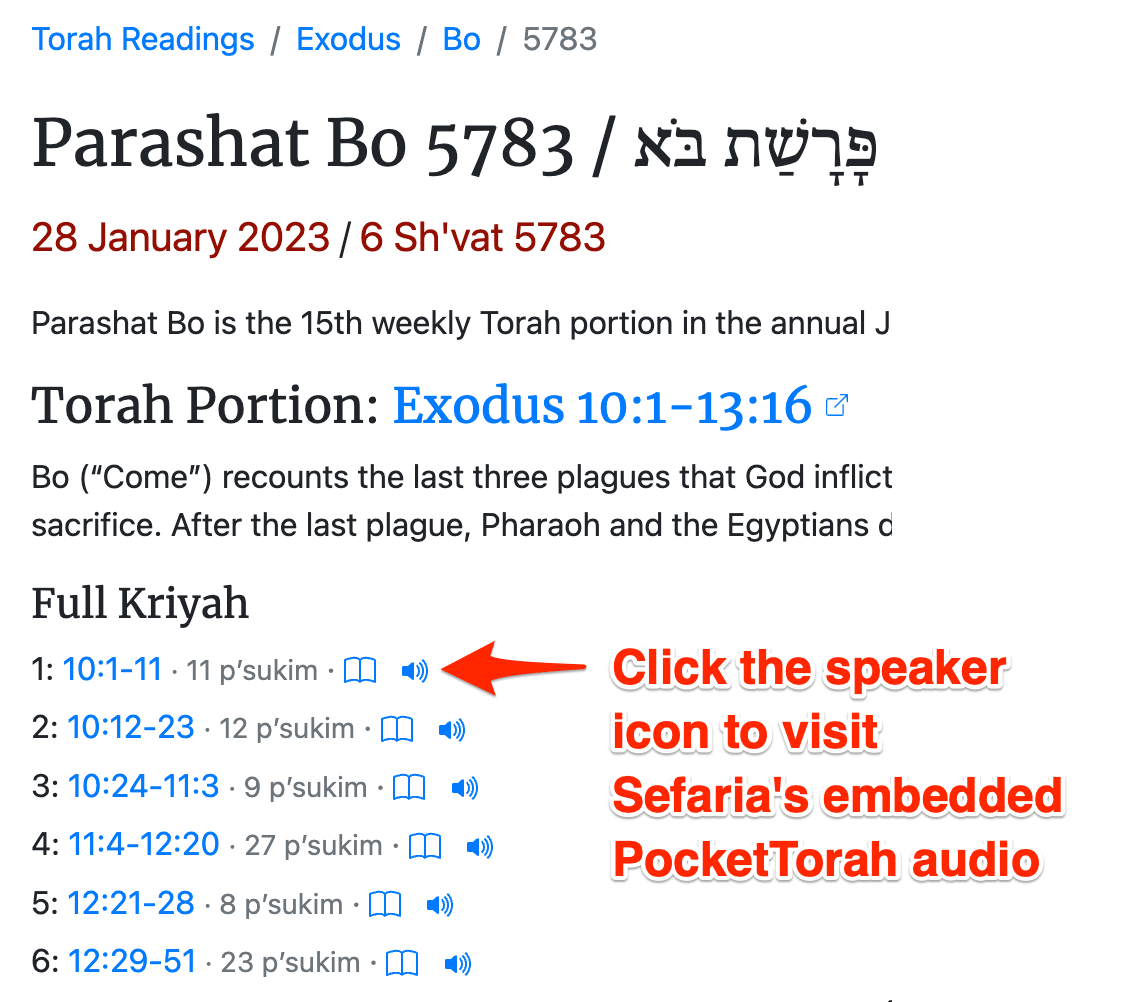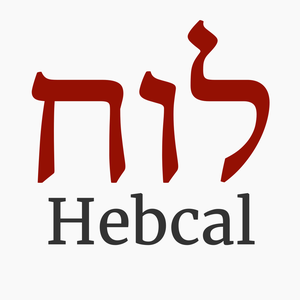Your comments
Thank you for your message. We are sorry to hear about any inaccuracy in our time zone database. Could you send us the exact ZIP code or city in Arizona where you believe Hebcal is in error so we can investigate further? We use two different data sources for time zones and cities, and we need a bit of help pinpointing the error.
Hi, thanks for your message. We are sorry to hear that the word "Yahrzeit" appearing in the feed URL is upsetting.
You can change the end of the feed URL to anything you like and the calendar feed will continue to work correctly.
For example if the URL is currently
https://download.hebcal.com/v3/01j45hp8v8mx6n3gkc35crdz43/yahrzeit.ics then you can simply change the feed URL to be https://download.hebcal.com/v3/01j45hp8v8mx6n3gkc35crdz43/personal.ics
Let us know if this works for you?
Thanks for your message. The rendering of calendar events for Yahrzeit, Hebrew Birthday, and Hebrew Anniversary depends on the optional name specified in the event name.
If the name contains at least one Hebrew letter (א through ת) then the anniversary title will be rendered in Hebrew.
If the name only contains Latin characters (e.g. English), then the anniversary title will be rendered in English. If you named the event "Itzhak ben Avraham" in English only characters, this is what you would expect to see.
Or did you specify both Hebrew letters and also English transliteration? We hadn't accounted for that case.
For more detail, please read this thread:
https://hebcal.userecho.com/communities/1/topics/1422-hebrew-title-for-a-recurring-birthday-event
Thanks for your message!
The Hebrew Date Converter page for Sat, 30 November 2024 correctly lists the Torah portion as Parashat Toldot
If you look at the Parashat Toldot detail page, you will see that indeed it already lists the special Machar Chodesh Haftarah
Hi, thanks for your message. This is pretty easy to calculate using the Hebcal command-line interface. Here's the general idea:
$ hebcal --chag-only -w | egrep -v "(Erev|CH''M|Hoshana)"
4/23/2024 Tue, Pesach I
4/24/2024 Wed, Pesach II
4/29/2024 Mon, Pesach VII
4/30/2024 Tue, Pesach VIII
6/12/2024 Wed, Shavuot I
6/13/2024 Thu, Shavuot II
10/3/2024 Thu, Rosh Hashana 5785
10/4/2024 Fri, Rosh Hashana II
10/12/2024 Sat, Yom Kippur
10/17/2024 Thu, Sukkot I
10/18/2024 Fri, Sukkot II
10/24/2024 Thu, Shmini Atzeret
10/25/2024 Fri, Simchat Torah
Now we need to just count how many times each holiday occurs on Sat or Sun versus another day
$ hebcal --chag-only -w --years 100 2000 | egrep -v "(Erev|CH''M|Hoshana)" | grep "Yom Kippur" | egrep "(Sat|Sun)," | wc -l
32
Here is a summary:
- Rosh Hashana: 58 / 200 chag days on Saturday or Sunday
- Yom Kippur: 32 / 100 days on Saturday or Sunday
- Sukkot: 58 / 200 chag days on Saturday or Sunday
- Pesach: 117 / 400 chag days on Saturday or Sunday
- Shavuot: 56 / 200 chag days on Saturday or Sunday
Note that we used a 100 year window to approximate. Note that has little to do with the 19-year cycle and more to do with the interaction between the Hebrew and Gregorian calendars. See the Jewish-Gregorian calendar correspondence cycle for more details on that. A calculation can be done with 1000 years, yielding similar results.
A similar calculation could be done for Israel if you add the -i flag, and adjust for the Israeli weekend (Friday + Saturday).
Thanks for using Hebcal, and we are sorry to hear you are having difficulty with timezones in Arizona.
Can you please share a bit more information so we can help? What city or ZIP code are you using for Shabbat and holiday candle lighting times? Could you share the URL of the page you are having difficulty with, and if possible, also a screenshot of the incorrect times?
https://www.hebcal.com/home/498/torah-trope-chanting-audio-leyning
In addition to providing details about the weekly Torah readings, Hebcal makes it convenient to listen to the audio of a professional cantor chanting Torah trope.
If you visit the Hebcal parsha pages from a larger display (desktop/laptop computer or a tablet), you can click the speaker icon to visit Sefaria‘s embedded PocketTorah audio.


The Sefaria native mobile app does not currently support the PocketTorah audio, so the Hebcal speaker icons are not displayed on mobile phones. The audio is displayed only on Sefaria website and depends on a larger screen, such as a desktop/laptop computer or a tablet.
Sukkot for Hebrew Year 5787 begins at sundown on Friday, 25 September 2026 and ends at nightfall on Friday, 2 October 2026.
| Date | Detail |
|---|---|
| Friday, Sep 25, 2026 | Erev Sukkot |
| Saturday, Sep 26 | Sukkot I |
| Sunday, Sep 27 | Sukkot II |
| Monday, Sep 28 | Sukkot III (CH’’M) |
| Tuesday, Sep 29 | Sukkot IV (CH’’M) |
| Wednesday, Sep 30 | Sukkot V (CH’’M) |
| Thursday, Oct 1 | Sukkot VI (CH’’M) |
| Friday, Oct 2 | Sukkot VII (Hoshana Raba) |
As you can see from the above table, Sukkot is exactly 7 days long.
Thanks for the suggestion. We updated our "about Hebcal" page as follows
Hebcal was created in 1992 by Danny Sadinoff as a Unix/Linux program, derived in large part from the Emacs 19 calendar routines by Edward M. Reingold and Nachum Dershowitz.
Customer support service by UserEcho


Hi, thank you for using the Hebcal APIs.
You are correct that if you specify a location in Israel such as Jerusalem, the API automatically assumes only one day of yom tov. There is no way to disable the Israel holiday schedule if you specify a city for candle-lighting and fast times.
You can work around this by making two separate calls to the API, and then merge the results together in your application.
The first would be for Diaspora holidays and Torah readings only, like the following:
https://www.hebcal.com/hebcal?v=1&cfg=json&maj=on&start=2024-06-09&end=2024-06-17&c=off&i=off&M=on&s=on&leyning=off
The second could be for Jerusalem candle-lighting times only, with no holidays or Torah reading:
https://www.hebcal.com/hebcal?v=1&cfg=json&maj=off&start=2024-06-09&end=2024-06-17&c=on&geo=city&city=IL-Jerusalem&M=on&s=off
Note carefully the URL differences. The first URL uses c=off s=on maj=on. The second URL uses c=on s=off maj=off
We hope this helps!